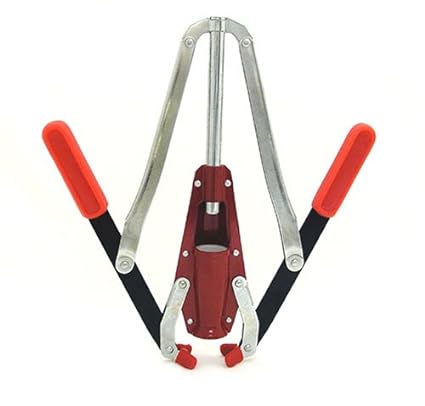beggarsu
Senior Member
- Joined
- Jun 25, 2013
- Messages
- 281
- Reaction score
- 26
Non Screw top bottle broke while corking - not a screw top. 

Corking with a two handled floor corker. I was unhurt as I always cork with my feet spread wide apart and the handles were of course also far apart.
The bottle was a "stray" - clear see through , used to have a fruit wine, someone gave it to me - shattered at the top.
I had corked a few bottles using my method of wetting the cork a bit with sulphide solution to help it go in. I know there is advice against this, though it is difficult to maintain consistency with a two handled floor corker ad I often get 'mushroom' corkings. But I tried a dry cork, I met resistance and I shattered the bottle.
From now on - I wet the corks so long as I don't have a floor corker.
---I made a nice save , I still had a full bottle of wine , I filtered it through a wire filter and a coffee filter . Waste not, want not - I would do that if I won the lottery, I just can't change my nature.
Don't worry, I 'll drink it myself , not give it to some poor soul.


Corking with a two handled floor corker. I was unhurt as I always cork with my feet spread wide apart and the handles were of course also far apart.
The bottle was a "stray" - clear see through , used to have a fruit wine, someone gave it to me - shattered at the top.
I had corked a few bottles using my method of wetting the cork a bit with sulphide solution to help it go in. I know there is advice against this, though it is difficult to maintain consistency with a two handled floor corker ad I often get 'mushroom' corkings. But I tried a dry cork, I met resistance and I shattered the bottle.
From now on - I wet the corks so long as I don't have a floor corker.
---I made a nice save , I still had a full bottle of wine , I filtered it through a wire filter and a coffee filter . Waste not, want not - I would do that if I won the lottery, I just can't change my nature.
Don't worry, I 'll drink it myself , not give it to some poor soul.













































